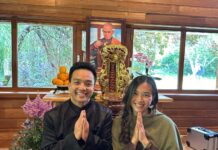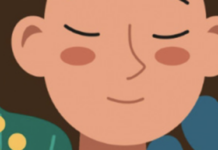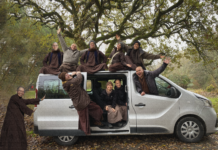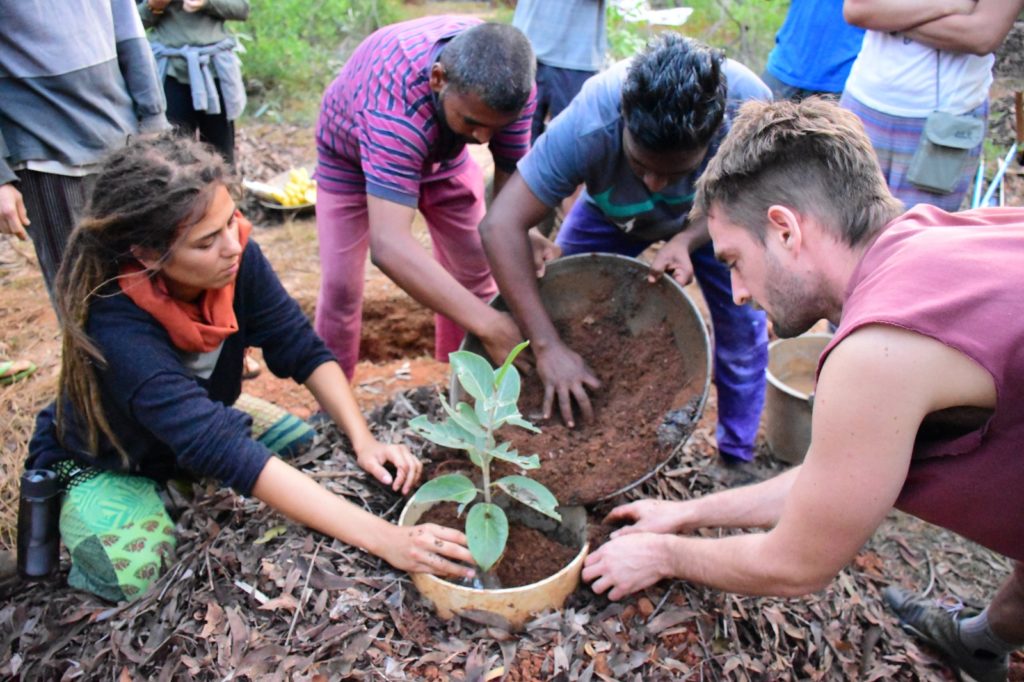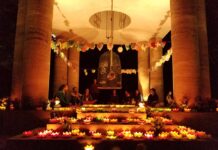Living in an Eco-Community
by Jazz (Gijs Van den Broeck)
The past four years, I have been living and volunteering in an eco-community in South India. We live very simply in thatched roof huts made from local, natural materials. Our community is off-grid and uses only electricity from our solar panels and the water we draw from our well. In our daily life, we practice reforestation, bringing back to life an almost extinct indigenous tropical forest on a 70-acre piece of land, returning water, trees, and life to a once-barren and deserted area. I have learned many practical things about community life and sustainable living practices, but the deepest teaching while living this life has been a very direct, lived experience of the reality of Interbeing.
Living this close to nature and actively participating in restoring it, it is impossible to ignore how interconnected we are with all life that surrounds us. It becomes unequivocally clear that with every single act, I impact the environment around me. (Authors note: Maybe saying that I impact the environment does not go far enough: I am part of the environment and I can choose to either acknowledge that and try to live from that understanding, or to try and forget about it and go against my own nature.) This leaves one no choice but to try and make every single act as much in harmony with nature as possible. This realization brings an incredible level of mindfulness to everything we do. Every daily activity—from brushing our teeth to going to the bathroom—becomes a conscious expression of love and care for all living beings.
This is so opposite from the urban lifestyle I grew up in. The life I was living before was much more comfortable, there is no denying that: there was no squatting over compost toilets, trying to beat off mosquitoes and the like. But this comfort comes with a certain kind of forgetfulness. We turn on the tap and there is water. Yet, we do not really know where it comes from, nor where it goes after we use it. And we often do not really have the time to look into it either because we have to make a living, take care of our family, focus on our studies, et cetera. Modern technology allows us to do incredible things, but the result of it is that we are often left disconnected from the natural world that recedes ever more into the background. It is very hard for us to directly see the impact of our daily life. The effects of it are all transported to far-away places: plastic ends up somewhere in the ocean killing some fish that we never even heard of; coal is burned in the next town over, producing greenhouse gases that may create drought even on the other side of the planet.
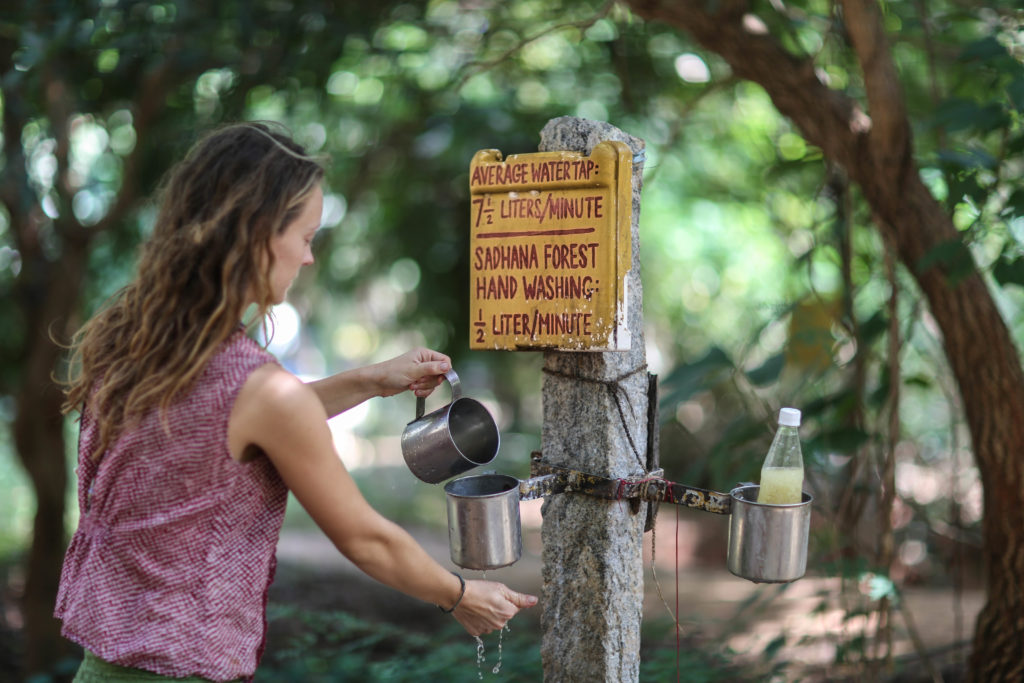
Let me illustrate this further with a counter-example from our community. Unlike in modern houses, we have few water taps. To wash our hands, there is a cup with a hole in the bottom, which we refill by taking water from a bucket. This allows us to clearly see the amount of water we are using. It makes it impossible to mindlessly leave the tap open, unaware of how much water we are using. We know very well where the water comes from: it comes from our own well. Our well has water because of the reforestation and water conservation work we are doing, which replenishes the aquifer. We can only take so much water from the well without depleting it, which would leave us (and our neighbors) without water, as we are living off-grid. So, we cannot take too much. After use, the water flows into the garden, watering the trees of our forest. We only use biodegradable soaps and cleaning products. If we did not, we would directly kill off the very trees we planted ourselves, which we obviously do not want to do. As Thay says in one of his gathas: “Water flows over these hands. May I use these hands skillfully to preserve our precious planet.”
Our toilets are similar. We use dry composting toilets, composting our human waste and using it as manure to grow our trees. As Thay says, “No mud, no lotus.’ We have to compost our waste, and then out of our waste, beautiful things can grow. “Defiled or immaculate – these concepts exist only in our mind,” to quote another gatha.
Every morning, I wake up to the sounds of birds and insects, and the first thing I see are nature and trees. None of these things were here twenty years ago, when this project was started. I just cannot help but be awestruck by how precious life is and how amazingly interconnected natural ecosystems are. As our practice gatha goes: ‘Opening the window, I look out onto the Dharmakaya. How wondrous is life!” These words were only theoretical concepts in my mind, until I moved here. This sentiment rings true despite the fact that we do not have windows: our huts are just floors with thatched roofs on top. No need for heating in the tropics!
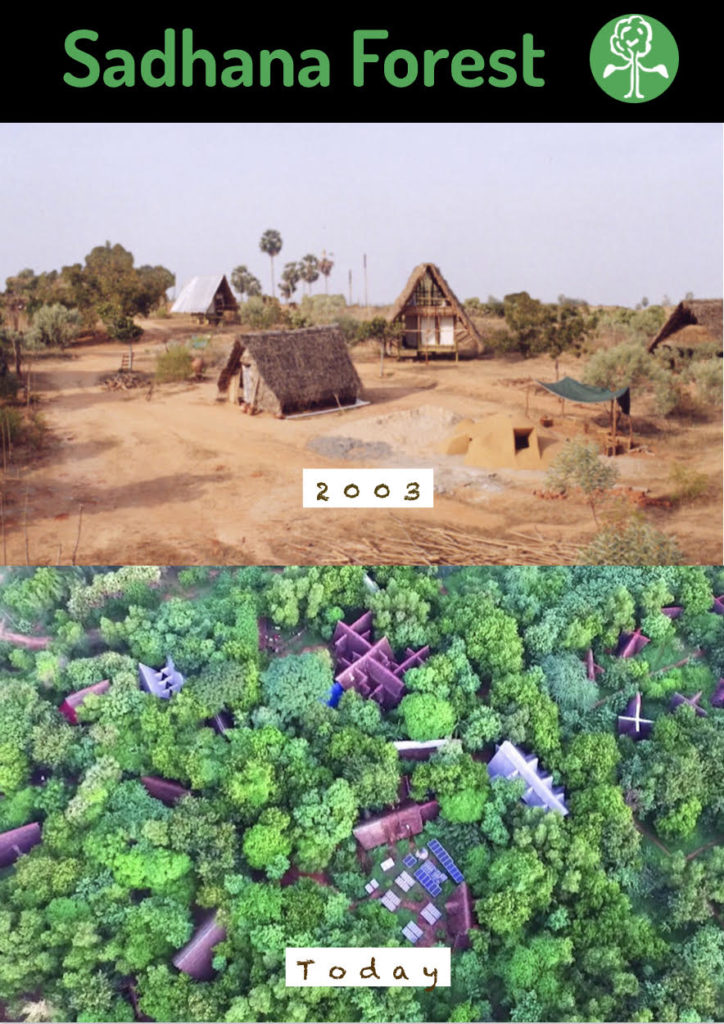
I encourage everyone to take some time to really work closely with nature, and especially to participate in restorative practices. For me, it has been an amazing complement to my more ‘formal’ practice on the cushion and in the Sangha. It helps me to have a real life experience, rather than a purely theoretical approach to Thay’s teachings on Interbeing and the wonders of life. Moreover, it is a great antidote to helplessness and despair. It shows me that change is possible, that nature is resilient, and that we humans can also be a force for good and part of the solution, if we only allow ourselves to work with nature and not against it.
On the other hand, coming to this ecological work with the experience of the practice allowed me to understand it in a much more profound way. Reforestation and ecological restoration are not just a technical intervention to combat climate change. They can also be deeply spiritual interventions that restore our connection to our Mother Earth, and heal the separation from her that many of us have undergone in our modern, urban lives. And this aspect is just as important! As we say in our community: “May there be many more forests to grow people.”
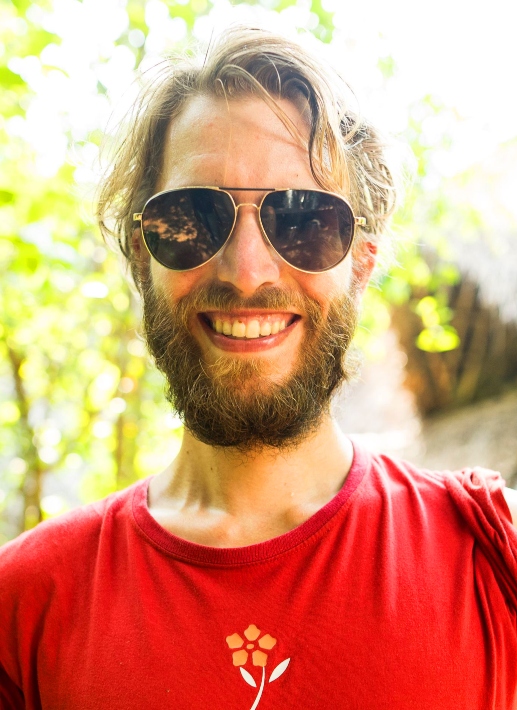
Jazz practices as a co-coordinator of Wake Up International and with several online Sanghas. He formerly was an intern in Plum Village and co-founded Wake Up Leuven. He lives and serves in Sadhana Forest, which is open to volunteers year round.
Edited by Erica Fugger



